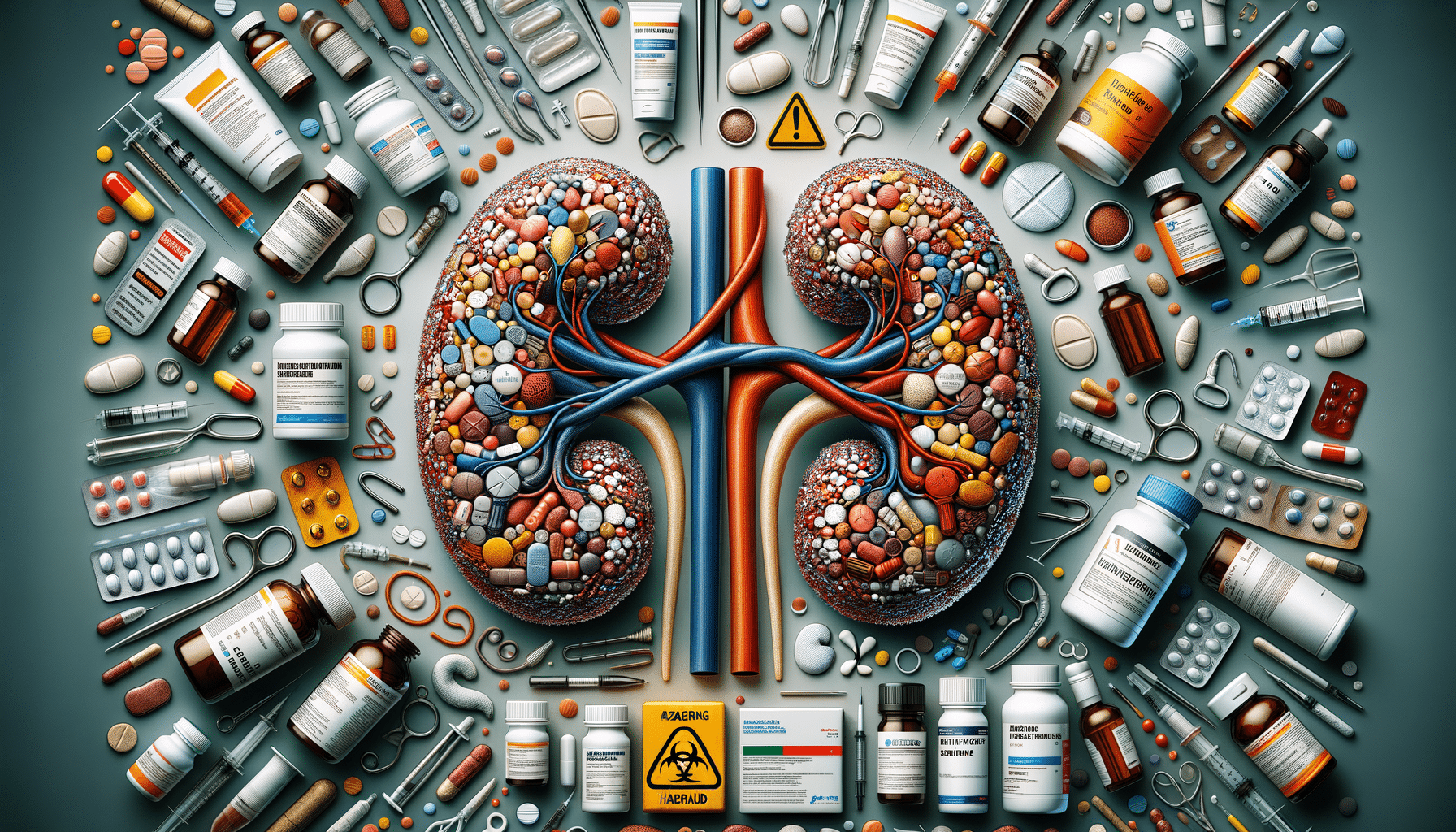
Introduction to Medication-Induced Kidney Disease
The kidneys play a vital role in filtering waste and excess substances from the blood, maintaining the body’s internal equilibrium. However, certain medications can adversely affect kidney function, leading to kidney disease over time. Understanding which medications can cause harm and how they do so is essential for both healthcare providers and patients. This knowledge is crucial for preventing potential kidney damage and ensuring overall health.
Medications can impact the kidneys in various ways. Some may reduce blood flow to the kidneys, while others can cause direct damage to kidney tissues. The risk is particularly significant for individuals with pre-existing kidney conditions, the elderly, and those taking multiple medications. Being informed about these risks can aid in making better healthcare decisions and managing medication regimens effectively.
Common Medications and Their Impact on Kidney Health
Several commonly prescribed medications have been identified as potential contributors to kidney disease. Non-steroidal anti-inflammatory drugs (NSAIDs), for instance, are widely used for pain relief but can reduce blood flow to the kidneys, especially when taken in high doses or over extended periods.
Antibiotics such as aminoglycosides are another group of medications that can be harmful to the kidneys. They are known to cause nephrotoxicity, which can lead to acute kidney injury. Similarly, certain blood pressure medications like ACE inhibitors and diuretics, although beneficial in controlling hypertension, may pose risks to kidney health if not monitored carefully.
It’s important to discuss with healthcare providers about the potential risks associated with these medications, especially if there are underlying health conditions that could exacerbate kidney problems.
Risk Factors and Vulnerable Populations
While anyone taking medications can be at risk of medication-induced kidney disease, some populations are more vulnerable than others. Elderly individuals often have reduced kidney function due to age-related changes, making them more susceptible to the harmful effects of medications.
Patients with pre-existing kidney conditions, such as chronic kidney disease (CKD), are also at heightened risk. For these individuals, even medications considered safe for the general population can lead to significant kidney damage. Additionally, those with diabetes or hypertension need to be particularly cautious, as these conditions already strain kidney function.
Understanding these risk factors is crucial for tailoring medication regimens to minimize potential harm and for implementing preventive measures in vulnerable populations.
Preventive Measures and Monitoring
Preventing medication-induced kidney disease involves careful monitoring and proactive measures. Regular kidney function tests, such as blood urea nitrogen (BUN) and creatinine levels, can help detect early signs of kidney damage. For individuals taking high-risk medications, these tests should be conducted more frequently to ensure kidney health is maintained.
Patients should also be encouraged to maintain adequate hydration, as dehydration can exacerbate the nephrotoxic effects of certain drugs. Furthermore, healthcare providers should review medication lists regularly to identify potential interactions or the need for dosage adjustments.
Educating patients about the signs of kidney problems, such as changes in urine output or swelling in the extremities, can also aid in early detection and intervention.
Conclusion: Staying Informed and Proactive
In conclusion, while medications are essential for managing various health conditions, they can pose risks to kidney health. Awareness of these risks and taking proactive steps to mitigate them is vital. Patients and healthcare providers must work collaboratively to monitor kidney function and adjust treatment plans as necessary.
By staying informed and vigilant, individuals can protect their kidney health and prevent the progression of medication-induced kidney disease. Regular communication with healthcare providers and adherence to recommended monitoring guidelines are key components of effective kidney disease prevention.